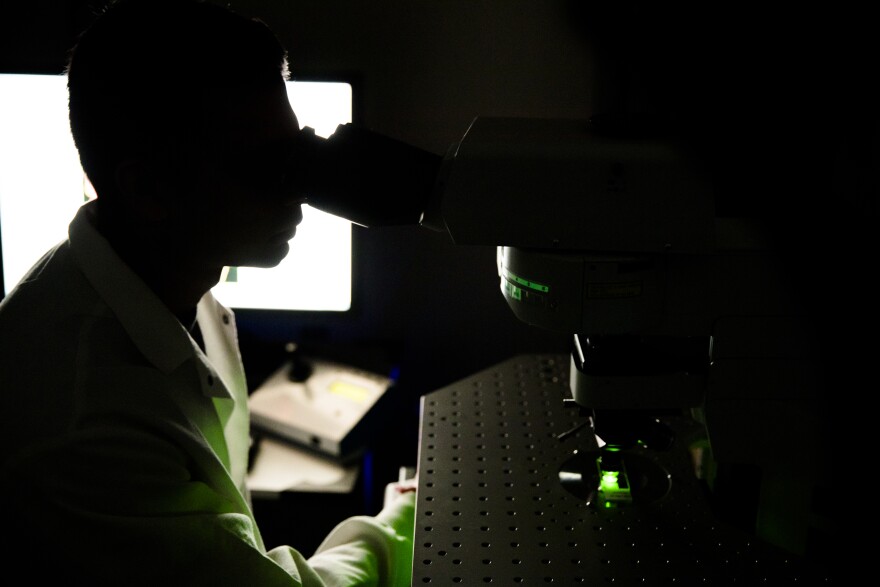A new way of detecting cancerous tumors is being researched by a University of Michigan professor that could someday replace the notoriously uncomfortable mammogram.
89.1 WEMU’S Lisa Barry spoke with University of Michigan biomedical engineering professor Greg Thurber about this new process.
It uses a disease-screening pill that makes tumors light up when exposed to infrared light.

Thurber lead a team of researchers on the process and says it has been shown to work in research on mice.
He adds that there are several benefits for detecting cancer by this method.

“Three of the main benefits that we’re really focused on are safety, cost, and compliance,” says Thurber.

Thurber says molecular imaging provides a more precise way of detecting tumors and determining if they are cancerous or benign.
Non-commercial, fact based reporting is made possible by your financial support. Make your donation to WEMU today to keep your community NPR station thriving.
Like 89.1 WEMU on Facebook and follow us on Twitter
— Lisa Barry is the host of All Things Considered on WEMU. You can contact Lisa at 734.487.3363, on Twitter @LisaWEMU, or email her at lbarryma@emich.edu






